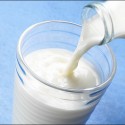Some of us are consuming cow milk at least once daily with breakfast cereal, then cheese with our burger for lunch and cheese-cake or yogurt or even ice-cream for a snack or desert. But have you ever questioned of where and when we started consuming cow’s milk and for how long adult-humans have been consuming… Continue Reading
Category Archives: Macronutrients

High Fructose Corn Syrup vs. Sucrose: Does it really matter?
Sucrose and high fructose corn syrup (HFCS) are common ingredients found in many processed foods. High US import taxes on sucrose and a more shelf stable product made HFCS the frontrunner of sugar and sweetener’s used to help manufacturer’s reduce production costs. An association made by handful of researchers between the increased use of HFCS… Continue Reading

Sleep Deprivation May Cause Your Afternoon Food Cravings, Leading to Obesity
Short sleep duration, less than 7 hours per night, increases the risk of being obese compared to those who sleep 7-8 hours per night. Previous studies showed this association several times, yet could not show a cause-effect relation due to some strong limitations of those studies. The American Journal of Clinical Nutrition published the latest… Continue Reading

Carb Loading
Carb loading, or muscle glycogen supercompensation, is a process used to increase glycogen storage in the muscles beyond normal levels. It is hoped that this extra storage will then allow athletes to maintain their exercise for a longer period of time before exhaustion starts to kick in. While this is may seem like great news,… Continue Reading

Nutritional Supplementation of Inpatients Suggest Health and Cost Benefits
Malnutrition of patients in the hospitals is a serious but under-watched problem. Malnutrition may slow down the healing processes and reduce effectiveness of medications in patients. Malnourished patients also have higher risks of poor outcomes, including increased length of stay, healthcare costs, complication costs, readmission and even mortality. Thus, several research works have already been… Continue Reading

Protein, Protein, and Protein
There are a wide variety of protein supplements out there, and while it is great to have options, it does make deciding which ones to use difficult. Knowing the differences between some of these major proteins and when to use them can help you make educated decisions to enhance your diet and help with your… Continue Reading

Do You Eat an Avocado with Your Hamburger?
If you answer “No, I already have plenty of fat in my burger from meat; but I do add avocado to my salad” – then you are not alone in this point of view. Many of us have heard about fats causing atherosclerosis, fats also cause oxidative damage. So, when we eat our burger, we… Continue Reading

Post-Workout Nutrition: Carbohydrates
When it comes to post-workout nutrition and supplements it seems that protein always steals the spotlight, and for good reason. There is no doubting the importance of protein in helping muscles grow and recover, however, it shouldn’t overshadow the another major player in muscle repair—carbohydrates. … Continue Reading

Omega-3 in Children is Associated with Cognitive Performance and Behavior
The majority of children do not like fish oil; interestingly, fish oil is one of the most important nutrients necessary for achieving good grades at elementary school. A UK cross-sectional study of 493 school children has shown that omega-3 may play a valuable role in cognitive performance. Surprisingly, not only were children shown to have… Continue Reading

Omega-3 and Prostate Cancer
A big buzz about an Omega-3 intake and prostate cancer study done by the Journal of the National Cancer Institute spread over the media like a plague, possibly horrifying and confusing the population. Fortunately, shocking news does not necessarily hold much truth if any at all. After reviewing this meta-analysis study, there were several big… Continue Reading
Macronutrients
Macronutrients are the dietary nutrients that supply energy, including fats, carbohydrates, and proteins. Nutrients are substances needed for growth, metabolism, and for other body functions. Since “macro” means large, macronutrients are nutrients needed in large amounts.
Fats have four forms: saturated fats, monounsaturated fats, polyunsaturated fats, and essential fatty acids. Carbohydrates contain both starches and sugars. Fat is found in meat, poultry, nuts, milk products, butter, margarine, oils, lard, fish, grain products, and salad dressings. Many people correlate fat intake with weight gain, but fats are essential for survival. We need fat for energy, growth, cushioning for organs, and maintaining cell membranes.
Carbohydrates are mainly found in starchy foods (e.g. grain and potatoes), milk, yogurt, and fruits. Other foods like vegetables, beans, nuts, seeds and cottage cheese contain carbohydrates, but in lesser amounts. Carbohydrates are the body’s main source of fuel and are easily used for energy in our bodies. Carbohydrates are also stored in the muscles for later use.
Protein is made up of amino acids. Protein is found in meats, poultry, fish, meat substitutes, cheese, milk, nuts, legumes, and in smaller quantities in starchy foods and vegetables. Protein is essential for growth, tissue repair, making hormones and enzymes, and immune function. Some amino acids are essential (meaning we need to obtain them from our diets) and others and nonessential (meaning the body can make them). Protein from animal sources contain all the essential amino acids we need. However, plant sources do not contain all the essential amino acids.







